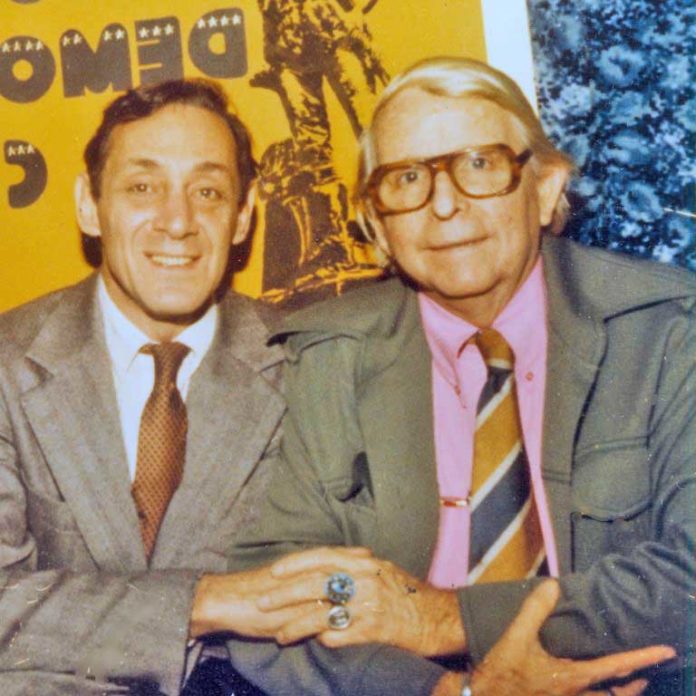This week, a new book titled “Morris Kight: Humanist, Liberationist, Fantabulist” was published. Morris, an early West Coast “gay liberationist,” as he called himself, was my host during my campaign to bring LGBT visibility to network television in the 1970s. Here’s a piece from my book about the Fantabulist, Morris:
“During the campaign against the networks in Los Angeles, it seemed that every hour was accounted for. Morris Knight and Troy Perry kept me entertained with parties and events almost every night. My living quarters most nights were in the Gay Community Services Center, then on Wilshire Boulevard, on someone’s couch. On one occasion, Morris visited a campaign cocktail party for a homophobic candidate for city council, telling me en route that the woman had no idea that she was about to enter a party of gay men. He then told me he was giving me the honor of confronting the candidate. I’m not quite sure what I said, but the next issue of the Advocate headlined the event as, ‘Candidate Flees Gay Party.'”
On yet another occasion, Morris took me to a fundraiser in the Hollywood Hills at the home of Terrance O’Brien. Terry was the chairperson of the board of the Gay Community Services Center and had gotten his parents’ permission to hold a fundraiser in their home. As I walked around the tastefully decorated home, several items caught my eye. The first was sitting on the fireplace mantle. Slowly approaching the statuette and looking at it closely to see if it was indeed what it seemed, I picked it up. Within an instant, Terry appeared out of nowhere to take hold of the statuette and said, “My father doesn’t let anyone touch the Oscar; it belonged to a very close friend of his.” As I glanced over to the corner of the room, I could see Morris smiling. I walked over to him and asked who Terry’s father was. Morris looked coyly at me. “Pat, of course.” He was talking about the actor Pat O’Brien. This brought a big smile to my face since it immediately made me remember him from one of my favorite old movies, “Some Like It Hot.”
Morris’ Los Angeles adventures had me at one of movie star Rock Hudson’s “boy parties,” where I felt more out of place than in a TV studio. There were all these guys in skimpy bathing suits. They all seemed to have great chests, short hair, many blonde and all were overly handsome. Hudson, himself exceptionally good looking, had a drink in his hand and seemed to be enjoying the view. Somehow the sight of me wearing old jeans and a T-shirt and my long hair down to my shoulders didn’t seem to please him, so we made a fast exit.
Then there was Bing Crosby’s Lincoln Continental Disneyland, and the time Morty Manford and I had to be rescued from the cliffs at Zoma Beach. Morris was certainly a character and a host. The book makes for a good read.
